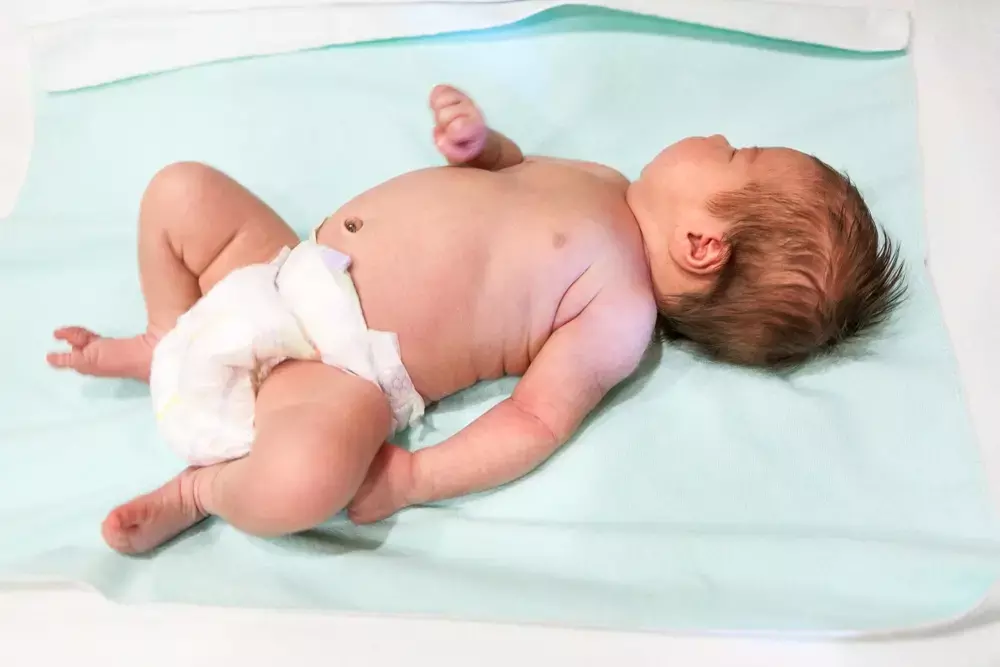- Home
- Medical news & Guidelines
- Anesthesiology
- Cardiology and CTVS
- Critical Care
- Dentistry
- Dermatology
- Diabetes and Endocrinology
- ENT
- Gastroenterology
- Medicine
- Nephrology
- Neurology
- Obstretics-Gynaecology
- Oncology
- Ophthalmology
- Orthopaedics
- Pediatrics-Neonatology
- Psychiatry
- Pulmonology
- Radiology
- Surgery
- Urology
- Laboratory Medicine
- Diet
- Nursing
- Paramedical
- Physiotherapy
- Health news
- Fact Check
- Bone Health Fact Check
- Brain Health Fact Check
- Cancer Related Fact Check
- Child Care Fact Check
- Dental and oral health fact check
- Diabetes and metabolic health fact check
- Diet and Nutrition Fact Check
- Eye and ENT Care Fact Check
- Fitness fact check
- Gut health fact check
- Heart health fact check
- Kidney health fact check
- Medical education fact check
- Men's health fact check
- Respiratory fact check
- Skin and hair care fact check
- Vaccine and Immunization fact check
- Women's health fact check
- AYUSH
- State News
- Andaman and Nicobar Islands
- Andhra Pradesh
- Arunachal Pradesh
- Assam
- Bihar
- Chandigarh
- Chattisgarh
- Dadra and Nagar Haveli
- Daman and Diu
- Delhi
- Goa
- Gujarat
- Haryana
- Himachal Pradesh
- Jammu & Kashmir
- Jharkhand
- Karnataka
- Kerala
- Ladakh
- Lakshadweep
- Madhya Pradesh
- Maharashtra
- Manipur
- Meghalaya
- Mizoram
- Nagaland
- Odisha
- Puducherry
- Punjab
- Rajasthan
- Sikkim
- Tamil Nadu
- Telangana
- Tripura
- Uttar Pradesh
- Uttrakhand
- West Bengal
- Medical Education
- Industry
Oral dexamethasone effective in treatment of infantile spasms and related Lennox-Gastaut syndrome

Oral dexamethasone is effective in the treatment of infantile spasms and infantile spasms related Lennox-Gastaut syndrome suggests a new study published in the BMC Pediatrics
Treatment with adrenocorticotropic hormone (ACTH) or a corticosteroid is the first choice for infantile spasms (IS), and vigabatrin is the first choice for children with tuberous sclerosis. Although corticosteroids may be also effective against IS and IS-related Lennox–Gastaut syndrome (LGS), the use of dexamethasone (DEX), a kind of corticosteroid, for these diseases has been rarely reported. This retrospective study aimed to evaluate the efficacy and tolerability of DEX for the treatment of IS and IS-related LGS.
Patients diagnosed as having IS (including patients whose condition evolved to LGS after the failure of early treatment) in our hospital between May 2009 and June 2019 were treated with dexamethasone after failure of prednisone treatment. The oral dose of DEX was 0.15–0.3 mg/kg/d. Thereafter, the clinical efficacy, electroencephalogram (EEG) findings, and adverse effects were observed every 4–12 weeks depending on the individual patient’s response. Then, the efficacy and safety of DEX in the treatment of IS and IS-related LGS were retrospectively evaluated.
Results
Among 51 patients (35 cases of IS; 16 cases of IS-related LGS), 35 cases (68.63%) were identified as responders to DEX treatment, comprising 20 cases (39.22%) and 15 cases (29.41%) with complete control and obvious control, respectively. To discuss the syndromes individually, complete control and obvious control were achieved in 14/35 and 9/35 IS cases and in 6/16 and 6/16 IS-related LGS cases, respectively. During DEX withdrawal, 11 of the 20 patients with complete control relapsed (9/14 IS; 2/6 LGS). The duration of dexamethasone treatment (including weaning) in most of the 35 responders was less than 1 year. However, 5 patients were treated with prolonged, low-dose maintenance therapy, which continued for more than 1.5 years. These 5 patients showed complete control, and 3 patients had no recurrence. Except for one child who died of recurrent asthma and epileptic status 3 months after stopping DEX, there were no serious or life-threatening adverse effects during DEX treatment.
Oral DEX is effective and tolerable for IS and IS-related LGS. all LGS patients were evolved from IS in this study. The conclusion may not apply to patients with other etiology and courses of LGS. Even when prednisone or ACTH is failed, DEX may still be considered as a treatment option. For children who respond to DEX but do not show complete control after 6 months of treatment, prolonged treatment with low-dose DEX administered in the morning might be considered.
Reference:
Li, J., Gao, Y., Cao, J. et al. Efficacy analysis of oral dexamethasone in the treatment of infantile spasms and infantile spasms related Lennox–Gastaut syndrome. BMC Pediatr 23, 255 (2023). https://doi.org/10.1186/s12887-023-04062-6
Dr. Shravani Dali has completed her BDS from Pravara institute of medical sciences, loni. Following which she extensively worked in the healthcare sector for 2+ years. She has been actively involved in writing blogs in field of health and wellness. Currently she is pursuing her Masters of public health-health administration from Tata institute of social sciences. She can be contacted at editorial@medicaldialogues.in.
Dr Kamal Kant Kohli-MBBS, DTCD- a chest specialist with more than 30 years of practice and a flair for writing clinical articles, Dr Kamal Kant Kohli joined Medical Dialogues as a Chief Editor of Medical News. Besides writing articles, as an editor, he proofreads and verifies all the medical content published on Medical Dialogues including those coming from journals, studies,medical conferences,guidelines etc. Email: drkohli@medicaldialogues.in. Contact no. 011-43720751


